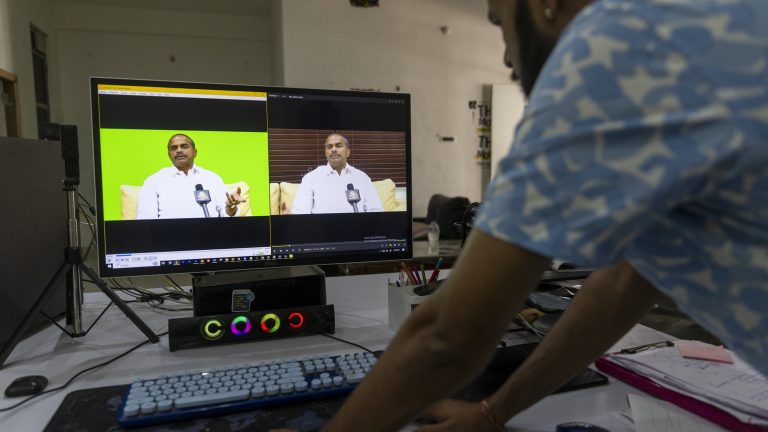Shankar Uprety founded Hamro Patro in 2010 as a hobby project. The app helped Nepalis abroad, like Uprety, keep track of the Nepali calendar (a Hindu lunisolar calendar that is generally 57 years ahead of the Gregorian version), including dates of cultural or religious significance. The calendar app has since grown into a super-app for millions of Nepalis who rely on it for about 25 different services, including a Gregorian-to-Nepali calendar converter, astrological natal charts, news, radio, mobile top-ups, remittance, and, most recently, telehealth.
The company generates revenue from advertising on its news pages, and from its e-commerce and remittance services, astrology consultations, and telehealth appointments. This week, the company is launching its own digital wallet: Hamro Pay.
This interview has been edited for clarity and brevity.
What was the problem you were trying to solve when you launched Hamro Patro?
In Nepal, we use a different calendar for our administrative work in the government offices and people’s day-to-day life. The Nepali calendar is not very straightforward like the Gregorian calendar and needs astrological number-crunching — while months are based on the solar calendar, days are calculated based on the lunar phases. Nepal also has many festivals that solely depend on that calendar. When I came to the U.S. for my studies, I brought with me a traditional calendar from Nepal. That would expire in a year, and then I’d find myself in a situation most of the diaspora was already facing. The initiative was dedicated to addressing the need first, which evolved into business later.

Your app is one of the most-downloaded Nepali apps. What’s been the most surprising thing about Hamro Patro’s growth?
We have nearly 100 people working on the app at the moment. If we account for the medical community and astrologers working with us, there are around 300 people associated with Hamro Patro. For an app that started as a small personal project, to reach this stage is exciting. Once the people started using our app, they had numerous suggestions and requests, and addressing them little by little brought us to where we are today. We never dreamed of becoming a big company or a super-app. The aspiration to connect all Nepali communities digitally made us one. One of the most surprising things to us is that the growth has been rapid: It took us five years to cross 1 million downloads, but in the next seven years, we crossed 15 million downloads.
You’ve said in past interviews that you’re optimistic about the direction the Nepali startup ecosystem is headed. What is working, and where do you think progress can be made to facilitate growth for companies like yours?
The startup ecosystem in Nepal is small. What is exciting is there are hundreds of startups in the Kathmandu Valley itself. Each year, thousands of IT graduates join the workforce. That is phenomenal. If we could create a stable ecosystem with proper infrastructure and policies, if we could make the working of public entities predictable, I see big prospects for growth in our industry. Accomplishing smaller tasks like registering a company, importing items, and paying taxes could be made easier, for example. I think entrepreneurs can figure out the rest.
You have one foot in Silicon Valley and the other in Nepal. How do you inject urgency and innovation in a company you built and love when you’re also having to operate in two different worlds with very different mindsets, resources, and infrastructure?
Having one foot in Silicon Valley and another in Nepal is an advantage for us. We are very quick to learn and adapt our working methodology and technology. Fortunately, the technology world is very closely connected, so we do not have a huge gap between Silicon Valley and Kathmandu Valley. But everything besides that is different, as you have noted — mindsets, resources, and infrastructure. Getting things done is sometimes a challenge with public institutions as well. While we face these issues, we are continuously motivated by the love and encouragement of our users.




